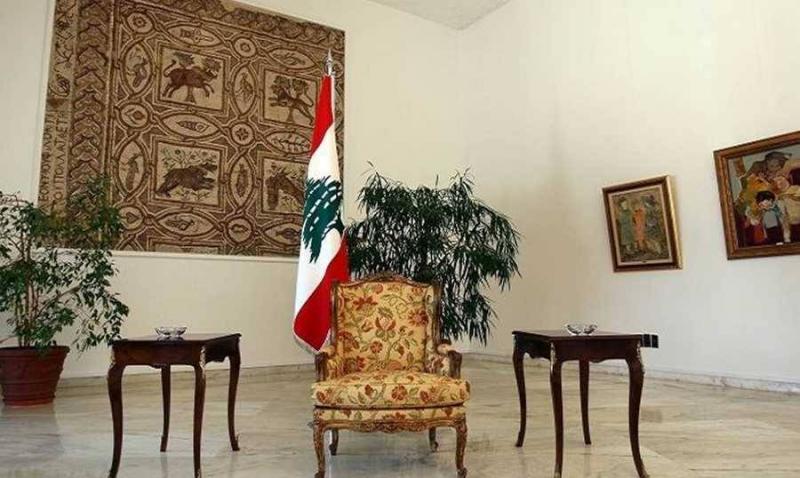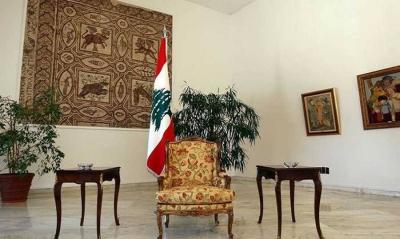Between an optimistic outburst and a pessimistic one, the presidential file swings on the ropes of initiatives, both external (the quintet committee) and internal, with the rising star of the National Moderation Initiative. It is noted that this initiative has sparked activity following the stagnation in the presidential elections. Since its establishment, the bloc has consistently occupied a centrist position in a country marked by sharp divisions. While the ambiguous positions of some of its members regarding the candidates aspiring to reach the Baabda Palace may create a sense of grey, this ambiguity has allowed it to play the role of a mediator among various political blocs and forces.
Regardless of the outcomes of its initiative and its ability to overcome the local obstacles set up in its path, can the bloc (with its diverse sectarian composition) derive a Sunni centrist stance, especially since the head of the Future Movement, Saad Hariri, does not oppose electing the candidate of the resistance axis, former Minister Sleiman Franjieh, as explained by some members of the National Moderation who harbor support for the head of the Marada Movement, according to "Nidaa Al-Watan."
Some observers and experts familiar with the dynamics of the Sunni arena and its political and societal interactions believe that the fate of the moderation positioning is tied to the success or failure of its initiative. Meanwhile, the roadmap for any presidential settlement in Lebanon begins with stopping the war in Gaza, implementing UN Resolution 1701, and seeking a candidate that reassures all political factions. Outside of these obligatory paths, discussing presidential breakthroughs is impossible. Additionally, the distribution of Sunni votes within the parliament is divided between two embracing entities (the Dar al-Ifta and the Kingdom of Saudi Arabia) which harmonize regarding the Lebanese crisis and its remedies, alongside a Sunni bloc supportive of Hezbollah and its candidate.
It has also been noted that the National Moderation movement has, if one can say, been encouraged and incentivized by Saudi Arabia, thus any positioning of these deputies will not be separate from the Saudi direction on one hand and the broad Christian bloc that rejects the election of Franjieh, represented by the Lebanese Forces, the Free Patriotic Movement, the Kataeb, the Renewed movement, and some independent deputies supported by Bkirki on the other hand.
In this context, Sunni sources emphasize that the overwhelming majority of the Sunni public opinion is not centrist, as they consider Hezbollah (and Iran behind it) to be a competitor. They assert that despite the conflict resolution framework established by Saad Hariri when he was Prime Minister, he has not succeeded in achieving Sunni coexistence with the party's weapons, which significantly contribute to the collapse of state institutions and undermine the foundations of parliamentary life and its simplest constitutional rules through obstruction. Additionally, they hinder the investigation into the Beirut port incident, among other complex issues related to the regional Islamic reality, all of which are factors that do not motivate Sunnis to move towards moderation unless these issues are addressed, affecting the majority of Lebanese who reject the Iranian axis. They further elaborate that despite the events following the Al-Aqsa flood and the unprecedented Israeli brutality in Gaza, the majority of Sunnis have not altered their orientations and positions regarding this axis. These backgrounds cannot be overlooked by "moderation" or disregarded in the presidential context.
Returning to the bloc and its presidential dynamics, sources confirmed to "Nidaa Al-Watan" that the initiative has not collapsed but is based on two main phases. The first concerns the content of the initiative and has garnered wide parliamentary acceptance, with more than 100 deputies supporting it, awaiting an official and clear response from Hezbollah. Based on that, the second phase will commence, focusing on two points: format and timing, meaning the location of the session within the parliament and the presidency of its management, in addition to determining the number of candidates' names. The bloc is set to meet with the Speaker of the House, Nabih Berri, next Saturday, and will continue its rounds with the relevant political forces.
Regarding Hezbollah's recent positions expressed by Deputy Secretary-General Sheikh Naim Qassem, affirming his adherence to Franjieh's nomination, the circles of moderation see it as natural for the parties to adopt a tougher stance on their candidates based on raising demands to enhance negotiation conditions until the presidential situation is matured. The sources concluded, revealing that the quintet committee is in the process of issuing a statement endorsing the initiative and engaging in discussions about the mechanisms before entering into names and presidential specifications.




